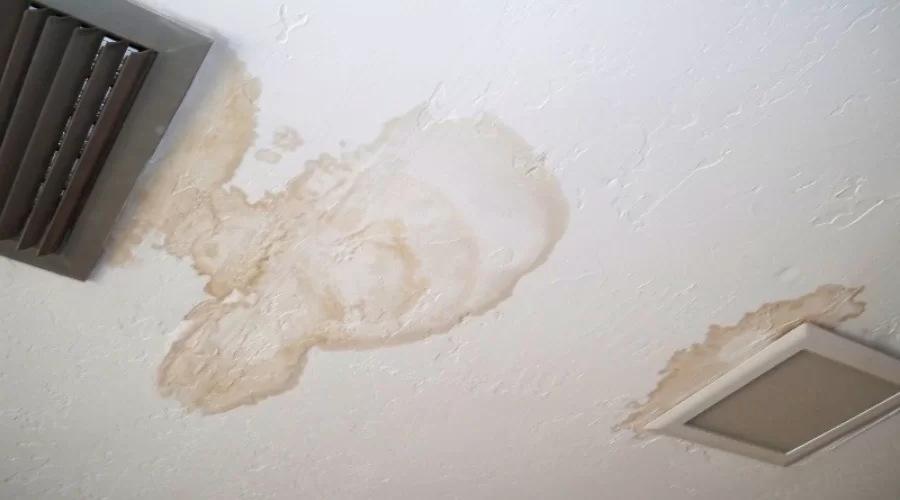Discovering water leaking from your ceiling AC vent can be a cause for concern, as it indicates a potential issue with your air conditioning system. In this article, we will explore the various reasons why water may be leaking from your ceiling AC vent, the consequences of this problem, and the steps you can take to identify and resolve it.

Read too: Are Floor To Ceiling Windows Expensive
Understanding Ceiling AC Vent Leaks
Ceiling AC vents are designed to distribute cool, conditioned air throughout your home. They are typically connected to a network of ducts that carry the air from your air conditioner. When water is observed leaking from an AC vent, it suggests that something has gone wrong in this system. Below are some common causes and solutions for this issue:
1. Condensation Buildup
Description: Condensation can form on the surface of AC vents when the cold air from the air conditioner meets the warm, humid air in your home. This condensation can eventually lead to water droplets forming and dripping from the vent.
Solution: To address condensation buildup, consider insulating the ducts and vents to prevent temperature differentials. Additionally, maintaining a comfortable indoor humidity level can help reduce condensation.
2. Clogged Drain Line
Description: AC units have drain lines designed to carry excess condensate away. When the drain line becomes clogged with dirt, debris, or algae, water can back up and leak from the AC vent.
Solution: Clean or unclog the drain line regularly to ensure proper drainage. A professional HVAC technician can assist with this task.
3. Refrigerant Leak
Description: A refrigerant leak can lead to a drop in temperature around the AC vent, causing condensation and water leakage.
Solution: If you suspect a refrigerant leak, it’s crucial to contact a professional HVAC technician to inspect and repair the issue.
4. Ductwork Issues
Description: Damaged or improperly sealed ducts can allow warm, humid air to infiltrate and mix with the cold air, resulting in condensation and leaks.
Solution: Inspect the ductwork for damage and ensure you seal all joints and connections correctly. Repair or replace damaged sections as needed.
5. Ice Formation
Description: In rare cases, ice can form on the AC unit’s coils, which can melt and cause water to leak from the vent.
Solution: Check for any obstructions or airflow issues around the AC unit, and consider increasing the temperature setting to prevent freezing.
6. Blocked Vents
Description: Blocking air vents with furniture, drapes, or other obstructions disrupts airflow and can lead to moisture buildup.
Solution: Ensure all vents are unobstructed to maintain proper airflow and temperature balance.
Consequences of Ceiling AC Vent Leaks
Ignoring water leaks from ceiling AC vents can lead to several issues, including:
- Ceiling and Wall Damage: Prolonged leakage can damage your ceiling and walls, leading to costly repairs.
- Mold and Mildew Growth: Moisture from AC vent leaks can promote mold and mildew growth, posing health risks.
- Reduced Cooling Efficiency: Leaks may compromise your AC’s performance and energy efficiency.
Conclusion
Water leaking from a ceiling AC vent is a problem that should not be ignored. Identifying the root cause and addressing it promptly is essential to prevent further damage and maintain the efficiency of your cooling system. Regular maintenance, prompt repairs, and humidity control can help ensure your AC system operates smoothly, keeping your home comfortable and dry.